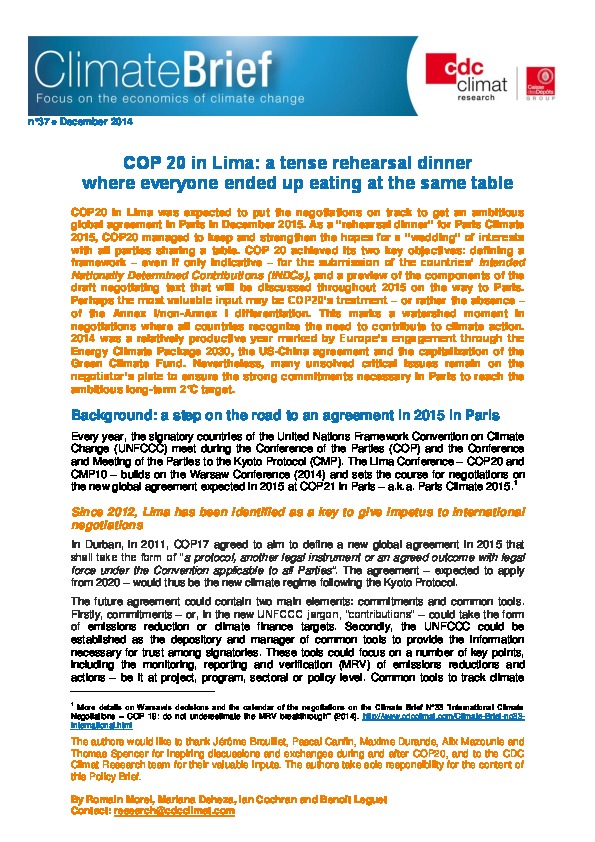COP 20 in Lima : a tense rehearsal dinner where everyone ended up eating at the same table
COP20 in Lima was expected to put the negotiations on track to get an ambitious global agreement in Paris in December 2015. As a “rehearsal dinner” for Paris Climate 2015, COP20 managed to keep and strengthen the hopes for a “wedding” of interests with all parties sharing a table.
COP 20 achieved its two key objectives: defining a framework – even if only indicative – for the submission of the countries’ Intended Nationally Determined Contributions (INDCs), and a preview of the components of the draft negotiating text that will be discussed throughout 2015 on the way to Paris. Perhaps the most valuable input may be COP20’s treatment – or rather the absence – of the Annex I/non-Annex I differentiation. This marks a watershed moment in negotiations where all countries recognize the need to contribute to climate action.
2014 was a relatively productive year marked by Europe’s engagement through the Energy Climate Package 2030, the US-China agreement and the capitalization of the Green Climate Fund. Nevertheless, many unsolved critical issues remain on the negotiator’s plate to ensure the strong commitments necessary in Paris to reach the ambitious long-term 2°C target.

